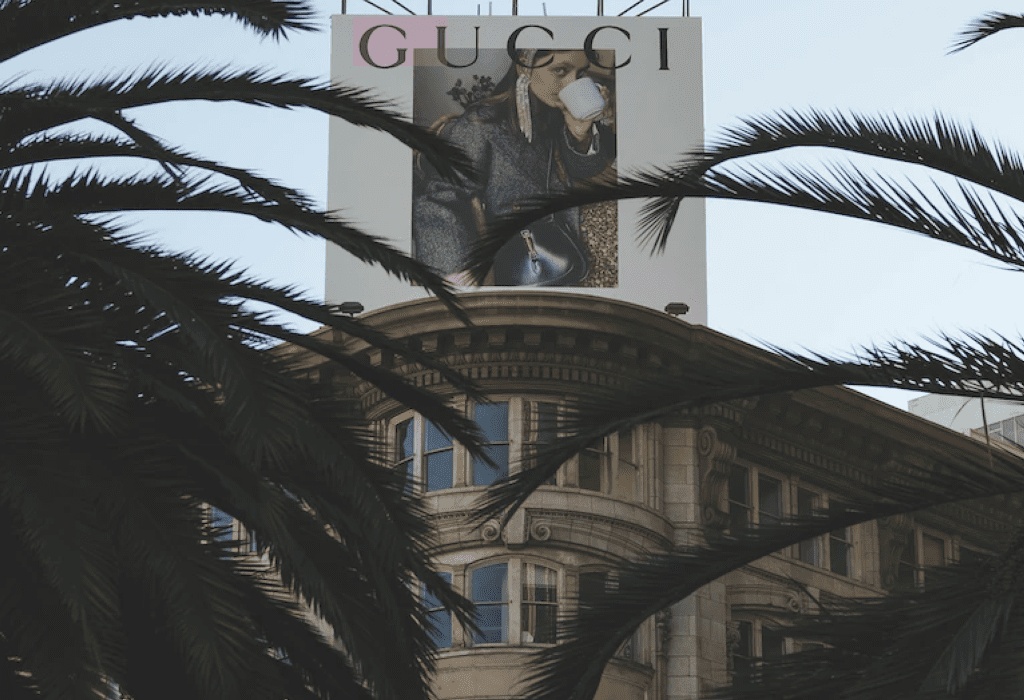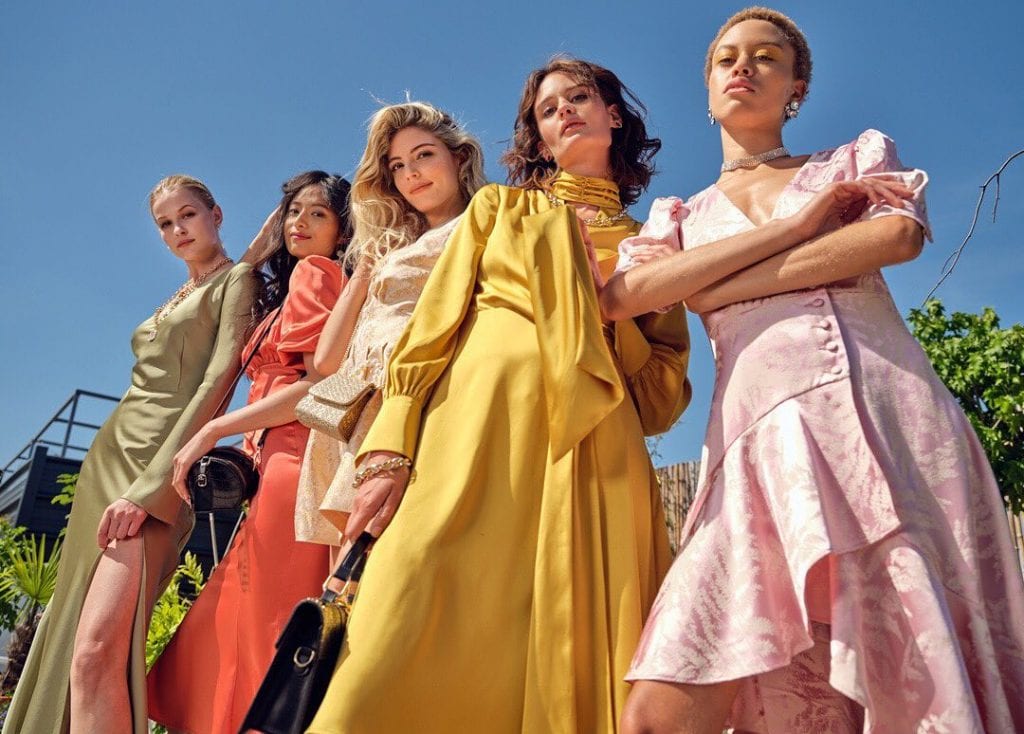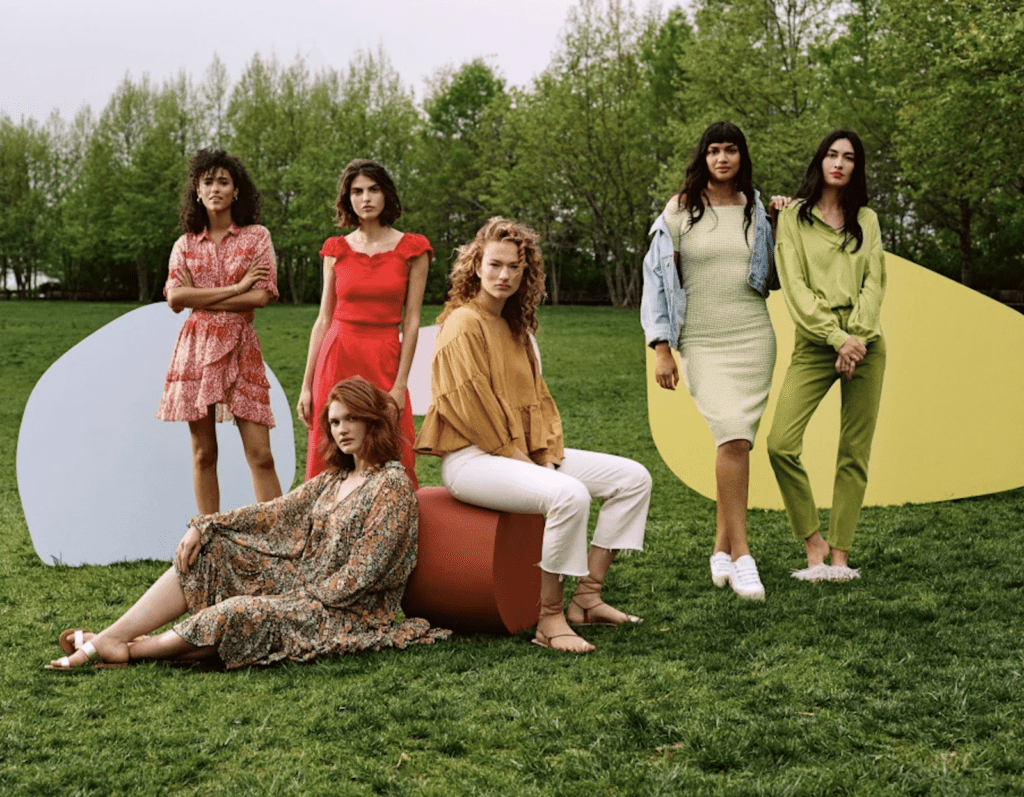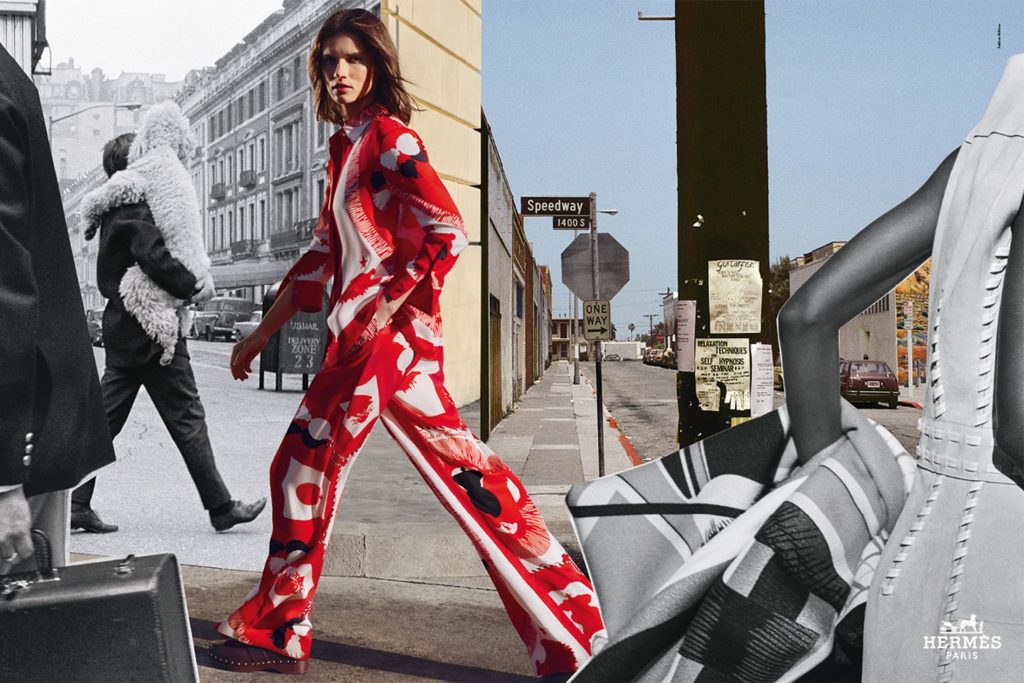Amid efforts by luxury companies to cater to consumers more broadly, including via branded restaurants and hotels, a new café bearing the Gucci name has popped up in Russia. The issue is that Gucci is not affiliated with – and has not approved – the Moscow-based endeavor, which local media outlets report is the product of a partnership between Russian musicians Yegor Creed and Timati, and restaurateur Anton Pinsky. Despite the lack of approval from the Kering-owned fashion brand, the GUCCI CAFE has opened its doors – complete with furniture upholstered in fabrics bearing Gucci’s well-known GG monogram and signage that consists of the GUCCI CAFE name depicted upside down and backwards.
The opening follows from efforts by Pinsky and co. to register their upside-down and backwards version of the GUCCI CAFE word mark with the Russian trademark office, along with the DOM GUCCI (House of Gucci) and GUCCI word marks in a similarly upside-down and backwards stylization – all for use in connection with restaurant services (Class 43). (Not exactly strangers to trademark squatting, as Western brands distanced themselves from the Russian mark, Pinsky and Timati sought registrations from the Russian trademark office for “Stars Coffee” and a logo that closely resembles the Starbucks’, and are operating a coffee chain using those marks.)
A spokesman for Gucci confirmed that the brand is in no way connected to the similarly named outpost, and “did not give any consent, permission or rights to [anyone to] open and manage this institution, whether under contract or otherwise.” The company’s rep stated that it will “take all necessary protective measures” to respond to such infringement.
The interesting question at play: Would the famed fashion brand would prevail in a hypothetical trademark infringement lawsuit? The result might not be as straightforward as usual considering Russia’s stance on non-native holders’ rights. Last year, reports began to circulate that the Russian government would put a moratorium on trademark protections for companies in “unfriendly” countries, i.e., those that implemented Russian-centric sanctions. (Trademark lawyers in Russia assert that no such trademark moratorium has been put in place.) And not long thereafter, a Russian court dealt One Entertainment a loss, dismissing the trademark and copyright infringement case that it filed against a Russian entrepreneur over his unauthorized use of its Peppa Pig marks and imagery. The basis for the court’s March 2022 determination? London-based One Entertainment’s infringement case amounted to an “abuse of rights” under Article 10 of the Russian Civil Code given the sanctions regime put in place by the UK.
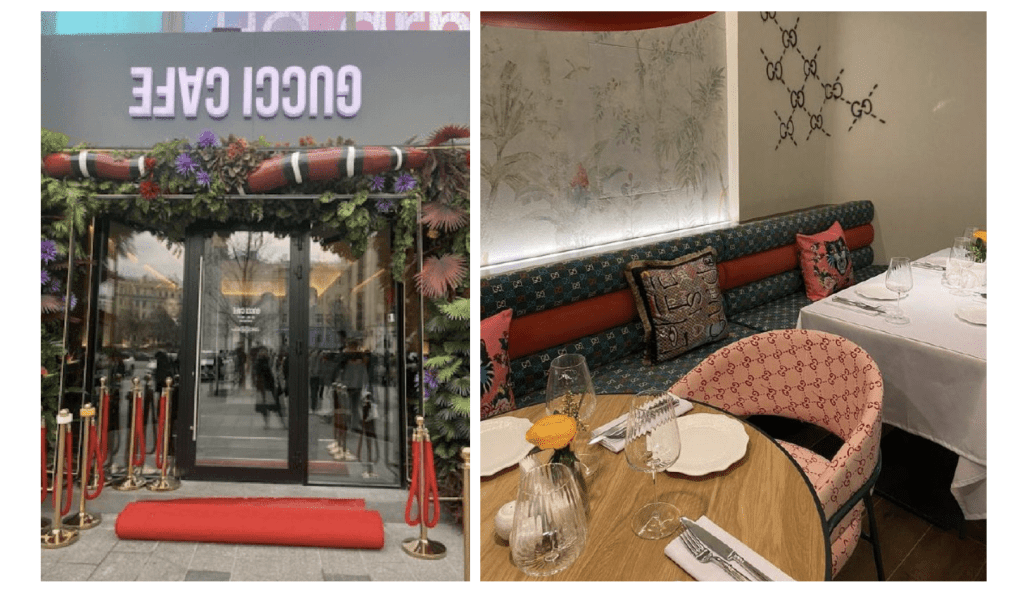
The court’s decision prompted concern among major brand owners, Klemchuk LLP’s Peggy Keene stated at the time, noting that it appeared to indicate that rights “belonging to companies in certain nations would no longer be recognized in Russian courts.” Some of that concern abated in June 2022 when a Russian court of appeals overturned the earlier decision, holding that in accordance with the Berne Agreement and the Madrid Convention, “equal protection of intellectual property of foreign organizations” must be guaranteed in Russia. The appeals court also noted that “motives behind the decision of the [lower] court … were not based on a correct application of substantive law.”
The consensus among trademark lawyers, including ones in Russia, is that the GUCCI CAFE is an obvious example of infringement. Nonetheless, Pinsky and co. have also proactively pushed back against any impending claims from Gucci, arguing that they are not infringing any of the brand’s rights because they are operating a restaurant and seeking registrations for EFAC ICCUG – not GUCCI CAFE.
Given that “the main factor for establishing infringement is whether consumers are likely to make a false association” between the trademark holder’s mark and the allegedly infringing mark, and since most people are likely to read Pinsky’s mark as “Gucci Cafe,” a claim that centers on the lack of similarity between the marks is unlikely to be persuasive, Kyiv-based attorney Maksym Popov asserts. “It is evident that the consumer will associate the restaurant with the fashion brand, he says. “This is especially true in this case, where [Pinsky and co. go further and include] GG monograms and the phrase ‘Life is ICCUG’ in the same font that appears on Gucci products” in the Gucci Ghost collaboration inside the restaurant.
In terms of additional defenses, Pinsky may argue that Gucci lacks a registration for its name in connection with restaurant services. However, such a claim is likely to fall short, as while Gucci does not have a registration that extends to restaurant services in Class 43, Moscow-based intellectual property lawyer Ana Skovpen tells TFL that since the 1980s, it has maintained registrations for its marks for restaurant and bar services in Class 42 in accordance with the Second Edition of the Nice classification (in which Class 42 was a catch-call category that included a whole host of services).
As for the validity of such registrations, Pinsky could potentially claim that Gucci has not made consistent use of its marks in connection with restaurant services. Gucci opened a temporary pop-up cafe in Moscow in 2021, but Skovpen claims that it is unlikely that “such use will be enough to prove its marks were in use for the last three years.” According to Russian law, a trademark registration can be cancelled at a third party’s request if the mark has not been used for “any three consecutive years after the registration.”
Against this background, Skovpen states that the situation may ultimately be a question of priorities for Gucci: It could sue to shut down the newly opened GUCCI CAFE, but in doing so, it may open itself up to having the validity of its Russian registrations challenged by the defendant(s). As for their pending trademark applications, Skovpen says that she suspects that considering Gucci’s existing registrations, the Russian trademark office will block their bid to register the unauthorized marks.
THE BIGGER PICTURE: The new “Gucci” outpost is a nod to the enduring appeal of Western luxury brands in Russia, which has seen a mass exodus of companies and their wares (in an official capacity, at least) following the start of the war and the onset of corresponding sanctions regimes. Reflecting on the recent expansion of the Russian Industry and Trade Ministry’s list of brands/products that may be imported without the authorization of the relevant trademark holders, Artem Sokolov, President of the Russian Association of Internet Trade Companies, stated that demand for Western brands and luxury goods remains, as “buyers had formed a high degree of loyalty” to these brands and their offerings before the onset of the war.
In light of still-escalating sanctions, the potential for unpredictable decision-making by Russian courts, and an influx of alternative channels of trade that are enabling authentic trademark-bearing goods (and counterfeits) to flow into the Russian market, brands are being encouraged to closely monitor unauthorized uses of their trademarks in Russia.




